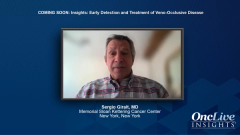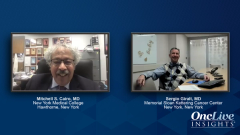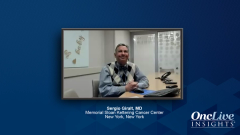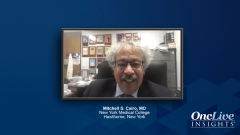
VOD: Ensuring Best Outcomes
Experts share tips for treating patients with VOD with defibrotide, including strategies to ensure best possible outcomes.
This is a synopsis of an Insights series featuring Mitchell S. Cairo, MD, of New York Medical College, and Sergio Giralt, MD, of Memorial Sloan Kettering Cancer Center.
Dr. Giralt explained defibrotide is a polydisperse oligonucleotide that protects endothelium through unclear mechanisms, restores thrombotic/fibrinolytic balance, reduces inflammatory mediators, and activates fibrinolysis. The phase 3 trial leading to FDA approval was a multi-center historical control study led by Dr. Paul Richardson. It compared defibrotide 25 mg/kg/day to best available therapy in severely affected VOD patients with multiorgan dysfunction. 102 received defibrotide, 32 comparator. Complete response rate at day 100 was 25% for defibrotide versus 9% controls. Day 100 survival was 38% versus 25%.
Pediatric response rates are markedly better. Notably, patients started on defibrotide within 48 hours of VOD diagnosis have significantly improved complete response (39%) and day 100 survival (61%). Many colleagues question if the 21-day FDA-approved course is necessary. Dr. Cairo explained Dr. Richardson’s seminal paper showed ~10% achieve complete response within a week, 10% more by day 14, 10-15% more by day 21. However, over 45% take 28-35+ days. Achieving complete response is critical, conferring 93% overall survival versus only 37% without. Some may need only 7-14 days, but extending therapy 28-35 days to achieve complete response optimizes outcome. As long as patients improve without progression, Dr. Giralt continues defibrotide until maximal response, monitoring closely after discontinuation to detect regression warranting restart.
Drs. Giralt and Cairo welcomed additional questions regarding VOD via email, hoping this discussion aids community colleagues in VOD diagnosis and management.
*Video synopsis is AI-generated and reviewed by OncLive editorial staff.










































